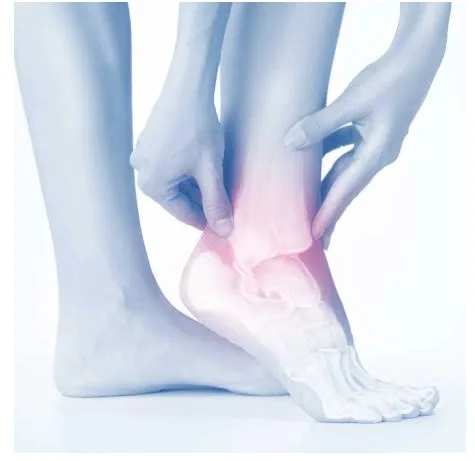Hurricane Hit Hard. The Insurance Company’s Offer? Not Even Close.
When a hurricane slams into your life, it doesn’t just uproot trees or rip apart roofs it unravels a sense of stability. You’ve paid your insurance premiums faithfully, expecting that when disaster hits, you’ll be covered. But instead of the security you paid for, you’re left with an insultingly low settlement offer that doesn’t come close to covering the damage.
This is not just a common story; it’s a systemic problem. Let’s explore why insurance companies often shortchange policyholders after hurricanes, how the claims process works, and what you can do when your insurer fails to live up to its promises.
Understanding How Insurance Works After a Hurricane
The Role of Homeowners’ Insurance in Storm Recovery
Homeowners’ insurance is meant to be a financial safety net. When a hurricane strikes, standard policies may cover wind damage, but many exclude flooding unless you’ve purchased a separate flood insurance policy through the National Flood Insurance Program (NFIP).
Despite this, the process of filing a claim should be straightforward:
- Document the damage.
- Notify your insurer.
- Meet with the claims adjuster.
- Receive compensation.
Unfortunately, insurance companies often treat this process not as a service, but as a negotiation. Their goal? Minimize payouts to protect their bottom line. For a breakdown of how insurance functions in general, see this article on insurance.
Common Tactics Insurers Use to Undervalue Hurricane Claims
1. Delaying the Process
Insurers may stall by requesting additional paperwork, conducting repeat inspections, or citing a backlog of claims. This delay puts pressure on you to accept a lower offer simply to move forward with repairs.
2. Lowballing Settlement Offers
Your adjuster may offer you a check that barely covers temporary repairs. This is a classic tactic, hoping that you’ll accept the first offer before realizing the full scope of your losses.
3. Denying Parts of Your Claim
Insurance companies often attempt to deny coverage by claiming the damage was pre-existing or caused by excluded events (like flooding instead of wind). In these cases, the burden falls on you to prove otherwise.
4. Blaming Policyholders
Another common maneuver is shifting blame to the policyholder. The insurer might argue that the damage was worsened because you didn’t “reasonably” mitigate it after the storm, another tactic to limit what they pay.
Why You Shouldn’t Accept the First Offer
It’s tempting to cash that initial check and start rebuilding, but doing so may lock you into a much smaller payout than you deserve. By accepting it, you may waive your right to seek additional compensation later.
A proper estimate should include:
- Structural damage to your home
- Damage to outbuildings or fences
- Personal property losses
- Temporary living expenses (if you had to relocate)
- Landscaping, debris removal, and more
Insurance adjusters hired by your insurer don’t work for you. Their job is to save the company money, not ensure you’re made whole.
What You Can Do When the Insurance Company Underpays
1. Get a Second Opinion
Hire a licensed, independent public adjuster to review your damage and provide a second estimate. These professionals work for you, not the insurance company.
2. Document Everything
Keep meticulous records:
- Take timestamped photos and videos of damage
- Save receipts for emergency repairs and hotel stays
- Maintain a communication log with the insurance company
This evidence can be critical if you decide to challenge your insurer’s offer.
3. Request a Reassessment
If you believe your claim was unfairly denied or undervalued, ask for a formal review. You can also file an appeal within your insurer’s internal dispute resolution process.
4. File a Complaint
In Texas, you can file a complaint with the Texas Department of Insurance. This can trigger further investigation and hold your insurer accountable for unfair practices.
When It’s Time to Call a Lawyer
Navigating Legal Options for Underpaid Hurricane Claims
If negotiations with your insurer stall or if they flat-out deny your claim, you may need legal representation to protect your rights. Insurance bad faith is a legal term that refers to an insurer’s intentional refusal to fulfill its obligations under a policy.
You may have a claim for bad faith if the insurance company:
- Delays or denies payment without a reason
- Fails to conduct a proper investigation
- Misrepresents policy language
- Uses coercive tactics to settle for less
In these cases, legal action may not just get your claim paid, it could entitle you to additional damages for the insurer’s misconduct.
How a Hurricane Damage Lawyer Can Help
A qualified attorney will:
- Review your insurance policy and coverage
- Conduct an independent assessment of your damage
- Negotiate aggressively with the insurer
- File suit if necessary to secure the full compensation you’re owed
Working with a skilled legal team can tip the balance of power in your favor, especially when insurance companies rely on complicated language and legal loopholes to justify underpayment.
If you’re facing an inadequate settlement after a hurricane, a Hurricane Damage Lawyer in Houston can evaluate your case, hold the insurer accountable, and help you recover what’s rightfully yours.
Real-Life Examples of Insurance Companies Falling Short
Case Study 1: The Roof That Didn’t Count
After Hurricane Harvey, one Houston family submitted a claim for roof damage and water intrusion. The insurer argued that the roof was “old” and would have needed replacement soon anyway. Their initial offer was $4,000. An independent appraisal valued the repairs at over $30,000. The family lawyered up and ultimately received a full settlement.
Case Study 2: The Denied Living Expenses
Another homeowner was displaced for over a month due to severe flooding and electrical issues. Their insurer refused to cover hotel costs, arguing the home was “technically habitable.” A lawsuit revealed internal documents showing the insurer’s adjuster had recommended approval, but the company overruled it to save costs. The homeowner was awarded triple damages.
Preparing for the Next Storm
Reviewing Your Policy
Don’t wait for the next hurricane to discover your policy doesn’t offer the protection you thought it did. Carefully review:
- Coverage limits
- Deductibles (especially hurricane-specific deductibles)
- Exclusions (flood, mold, etc.)
- Additional living expense coverage
Keep an Updated Inventory
A digital inventory of your home and belongings (with photos, receipts, and serial numbers) can make a massive difference during the claims process. Store it in the cloud so it’s accessible even if your home isn’t.
Conclusion: Don’t Let the Insurance Company Decide Your Future
After a hurricane, you’ve already lost enough. Don’t let your insurance company add insult to injury by offering a fraction of what you’re owed. You deserve a fair and full settlement one that reflects the damage to your home, your possessions, and your life.
Push back against lowball offers. Arm yourself with knowledge. Consult professionals who can give you an unbiased assessment. And if necessary, work with an attorney who will stand up for your rights. Because rebuilding your life shouldn’t come down to a fight, but if it does, make sure you’re ready to win.



